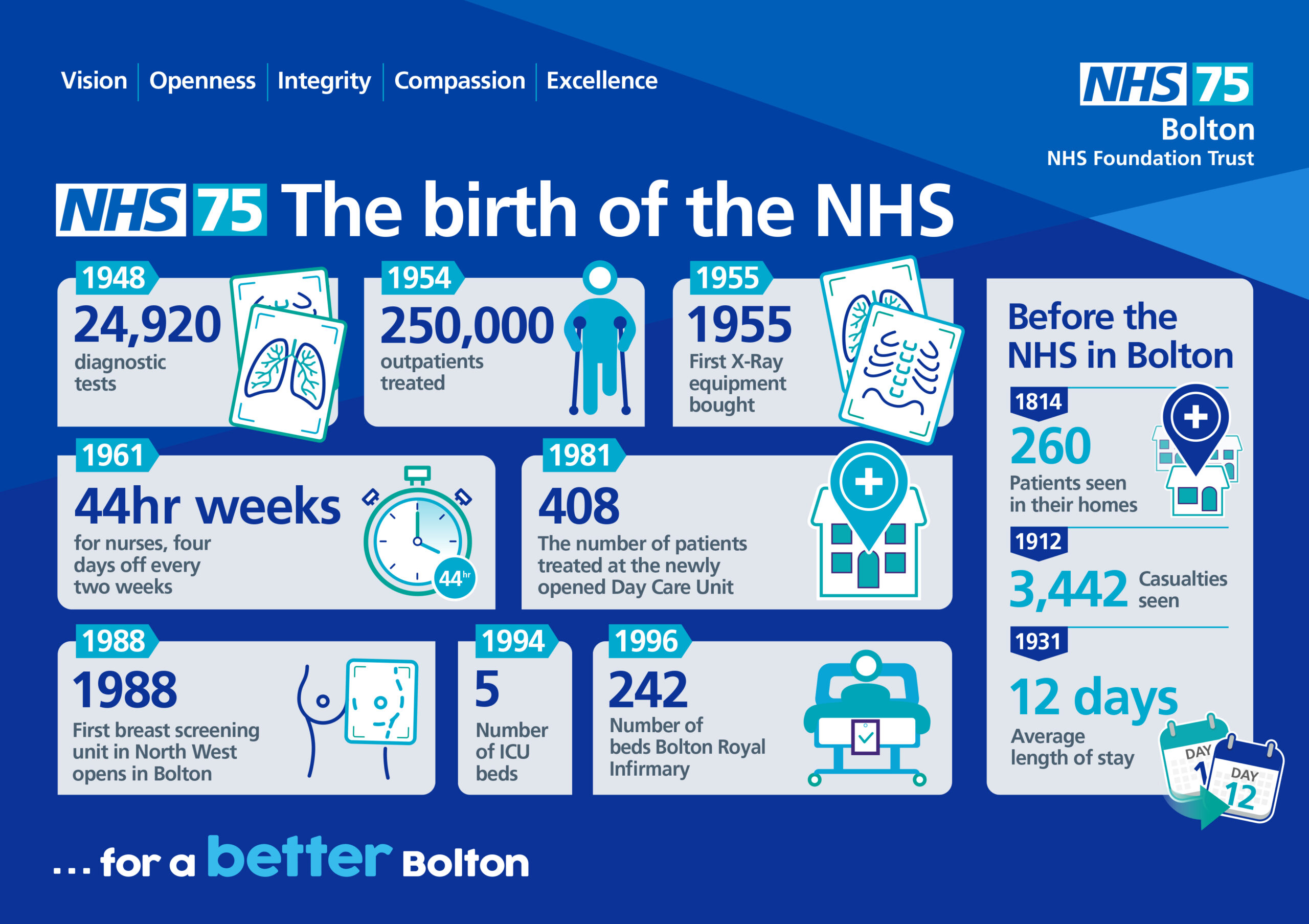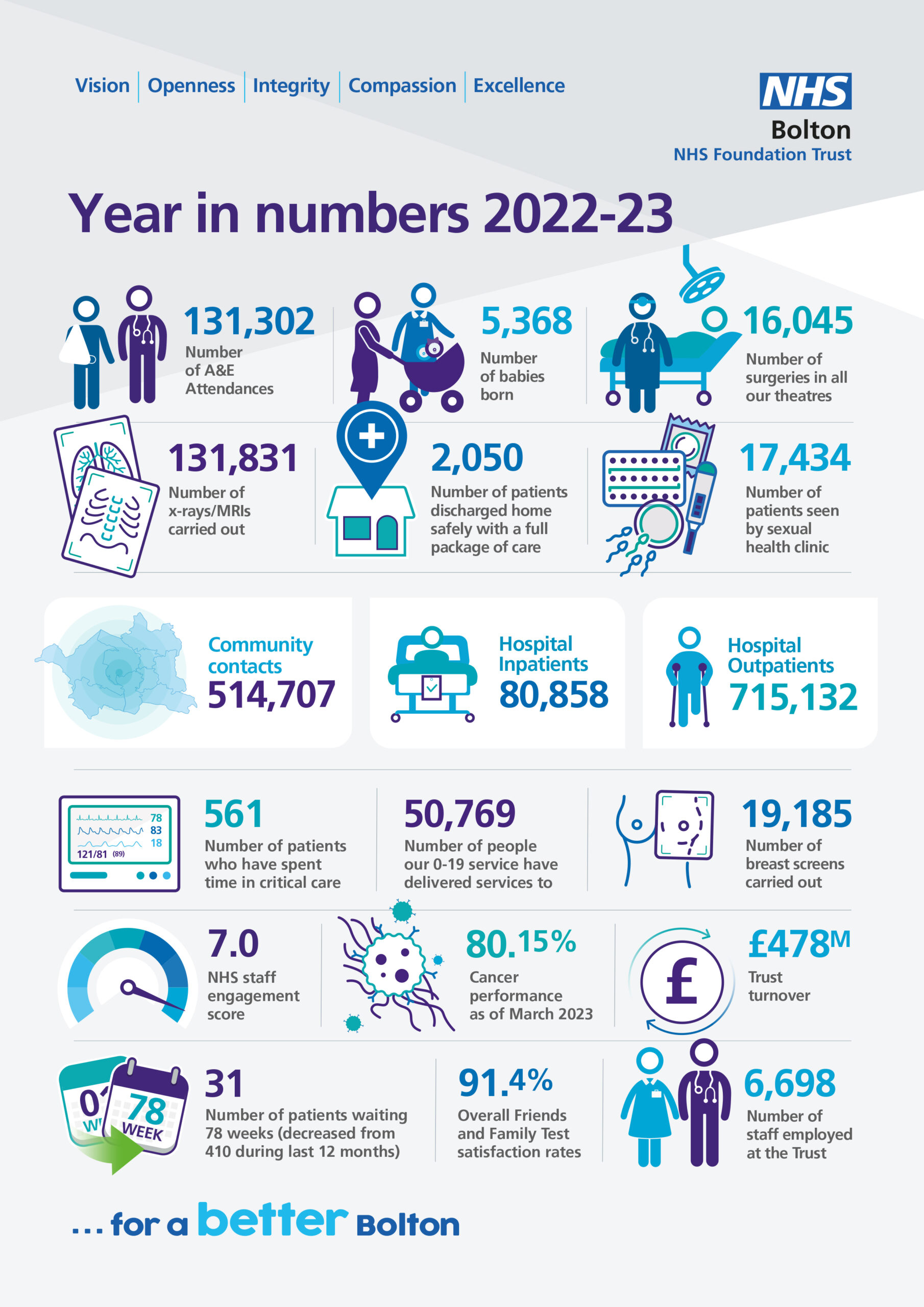Latest news
1948 – 2023: Celebrating 75 remarkable years of the NHS in Bolton
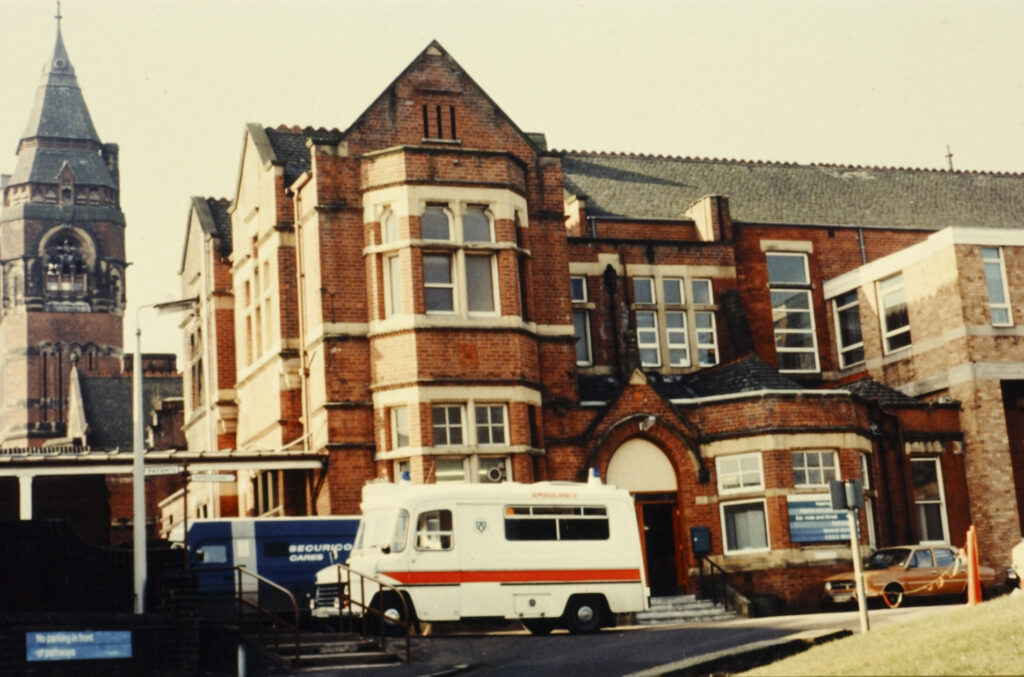
The NHS in Bolton has proudly served its town for three quarters of a century, providing care free at the point of delivery for millions of people who have needed treatment and support.
Since the opening of the Bolton Infirmary in the 1800s and later the creation of the General Hospital, vital medical healthcare has continued through world wars, economic crises, and more recently a global coronavirus pandemic that changed the world.
In that time Bolton has been at the forefront of medicine, trailblazing new treatments and identifying innovative ways of improving patient care.
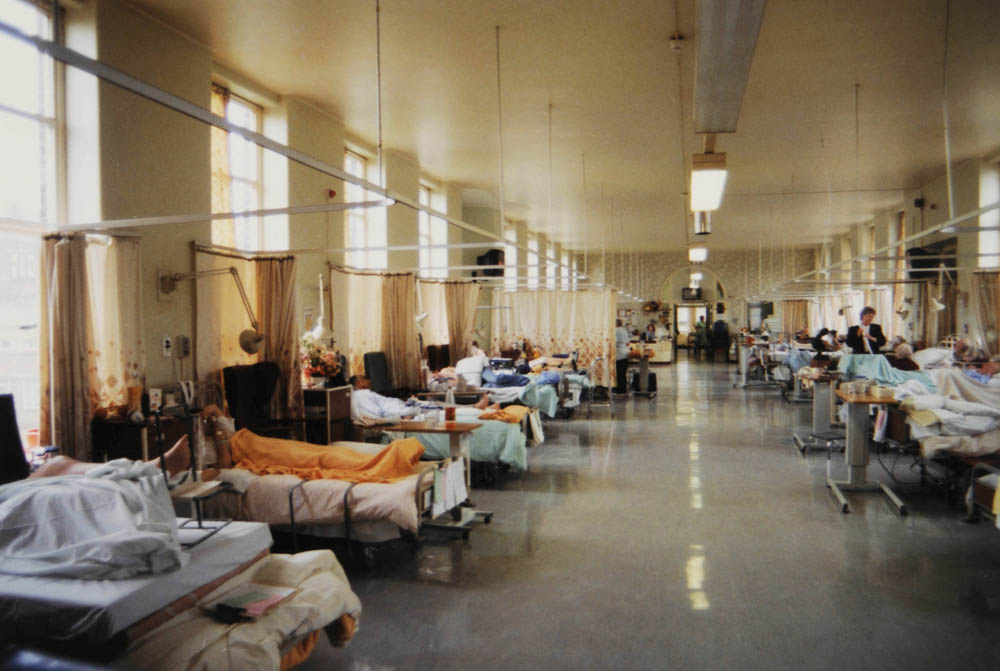
In 1988 a new Breast Screening Unit opened in the town, the first unit to open in the North West, offering mammography to all women between 50 and 65.
During the 1990s, Bolton also became the first area in the country to administer blood transfusions at home, and to date remain one of the few teams who deliver transfusions in patients’ homes.
Today, work to future-proof the health service is well underway with the development of new theatres, a Community Diagnostic Centre, and a pioneering new Bolton College of Medicals Sciences.
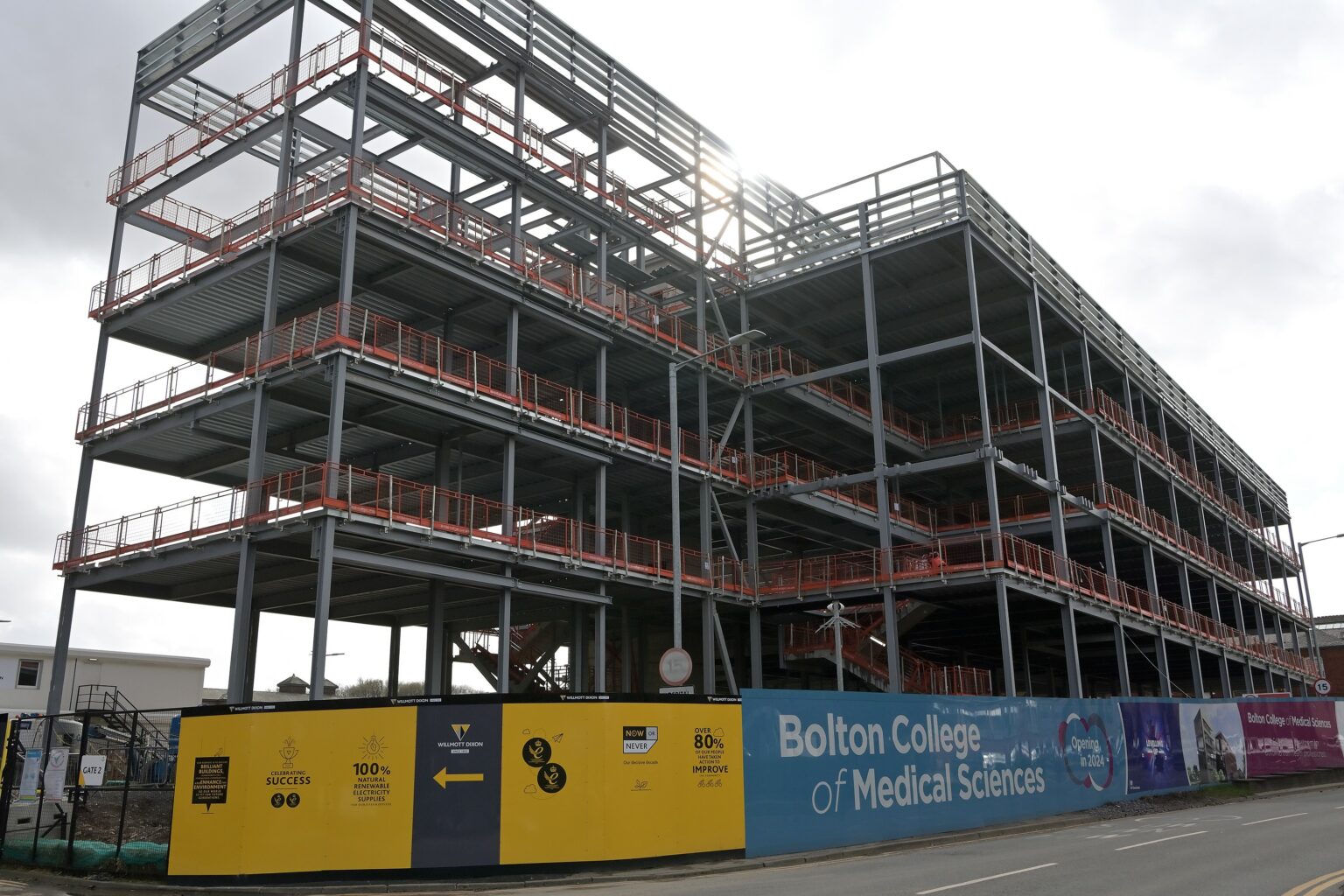
Figures from Bolton NHS Foundation Trust’s archives detail the dramatic changes that have taken place in patient care and working life, as well as many parts of the NHS that remain and feel the same in 2023.
In 1948, records show a small Clinical Laboratories team in Pathology was increasing its workload, delivering just over 12,000 hematology tests. In 2022, that figure was 637,000, with more than 8 million overall tests now carried out.
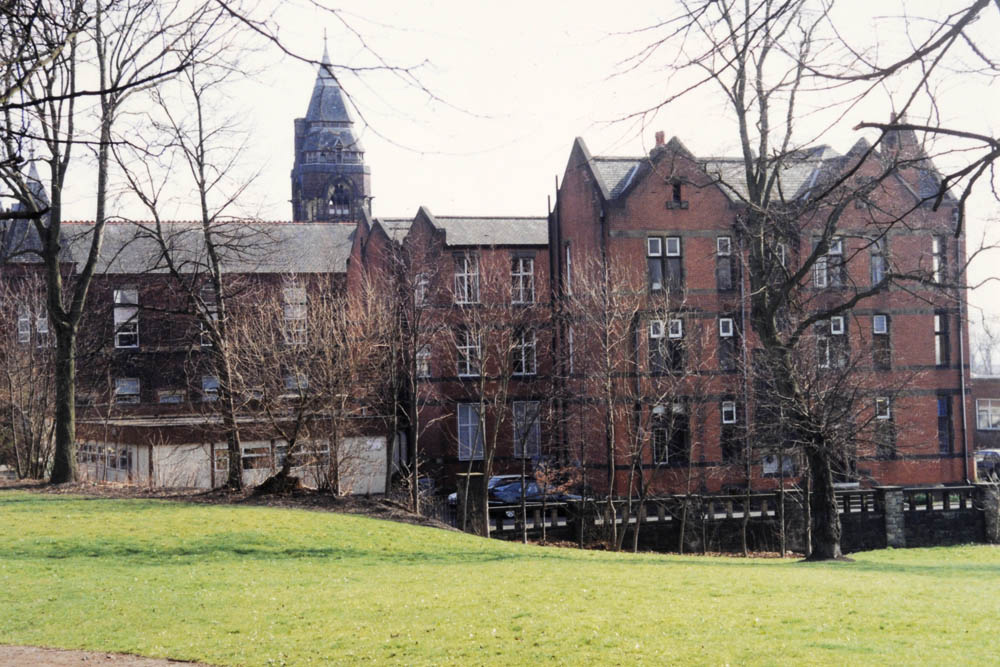
The number of outpatient attendances have also experienced a large increase over the past seven decades, rising from 250,000 in 1954 to more than 700,000 in 2022.
By 1987, the A&E department at the Royal Infirmary was seeing 1,400 patients a week, with one nurse referencing how “team work was vital to cope with the ever increasing demands.”
Most recent figures for Royal Bolton’s Emergency Department reveal 131,000 patients passed through the doors in 2022-23.
A day in the life of a newly qualified Staff Nurse
Mary Hulme, a newly qualified Staff Nurse in 1959, detailed what a typical day in the life looked like for those starting out in their NHS career in the 50s.
She wrote:
The time is 7.25am on a Monday morning. The crocodile of day staff emerge from the dining room, the others from the attic rooms above Kitchener ward, using as changing rooms for non-resident staff.
“At the bottom of the stairs the nurses disperse rapidly to their various wards or departments. For me, newly qualified Staff Nurse Sutton, it was to Musgrave, the medical ward. I hurried along very conscious of my stuff, red epaulettes and belt, in sharp contrast to the starched white apron covering the purple and white checked dress.
“First of all it was into the office to take the report from the night nurse, whilst the rest of the staff set about the daily routine of pulling out the beds to sweep and dust.
The diary sets out the various duties that nursing staff had to carry out at the start of the day, from cleaning with disinfectant to making sure the beds were extra neat and that patients were “tucked in tightly”.
By 8.30am all eighteen beds in the main ward were expected to be made. Sister would start to go round, visiting each patient in turn and checking the intake and out charts. Woe betide the nurse who had failed to fill this in.
“The patients case notes were laid out on the bed tables out of the patients’ reach, awaiting the arrival of the Consultant. Everyone waited in eagerness and some trepidation.
“When the doctors had finished in the main ward, they proceeded into the side wards. The nursing staff were in big trouble if a report had been lost, or a treatment or investigation not done. The staff then moved back into the main ward to look to patients’ comforts, and carry out the overdue blood pressure readings and two hourly feeds.
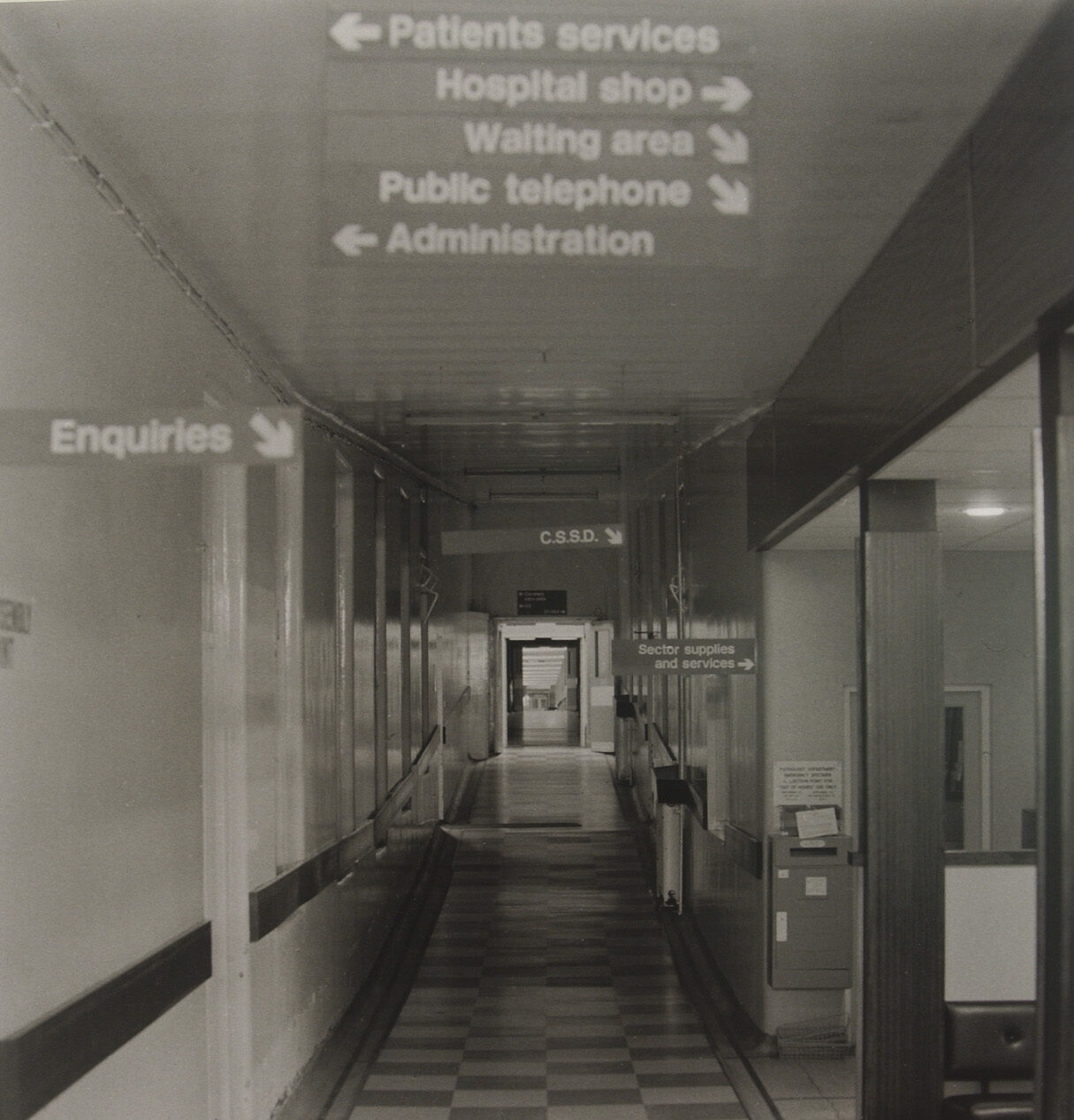
‘Hard days, but happy’
“The staff break was at 4pm or 4.30pm for half an hour. Myself and several others were free until 5pm. What was there to do? Well, one could have a wander around Bolton or go down to Bridge House and put your feet up before having a special Bridge House tea of tinned spaghetti, or beans on toast.
“All too soon it was time to return to duty. The patients were made comfortable and ready for their visitors at 7.30pm.
“I would then go round the ward checking that all was in order before handing over to the night nurse. If all was well, I would thankfully go off duty until 7.30am.
“They were hard days, but happy.
The NHS celebrates its 75th anniversary on Wednesday 5 July 2023, and throughout the year Bolton NHS Foundation Trust will be marking the milestone with tributes and memories on it’s website.
Our Bolton NHS in numbers
